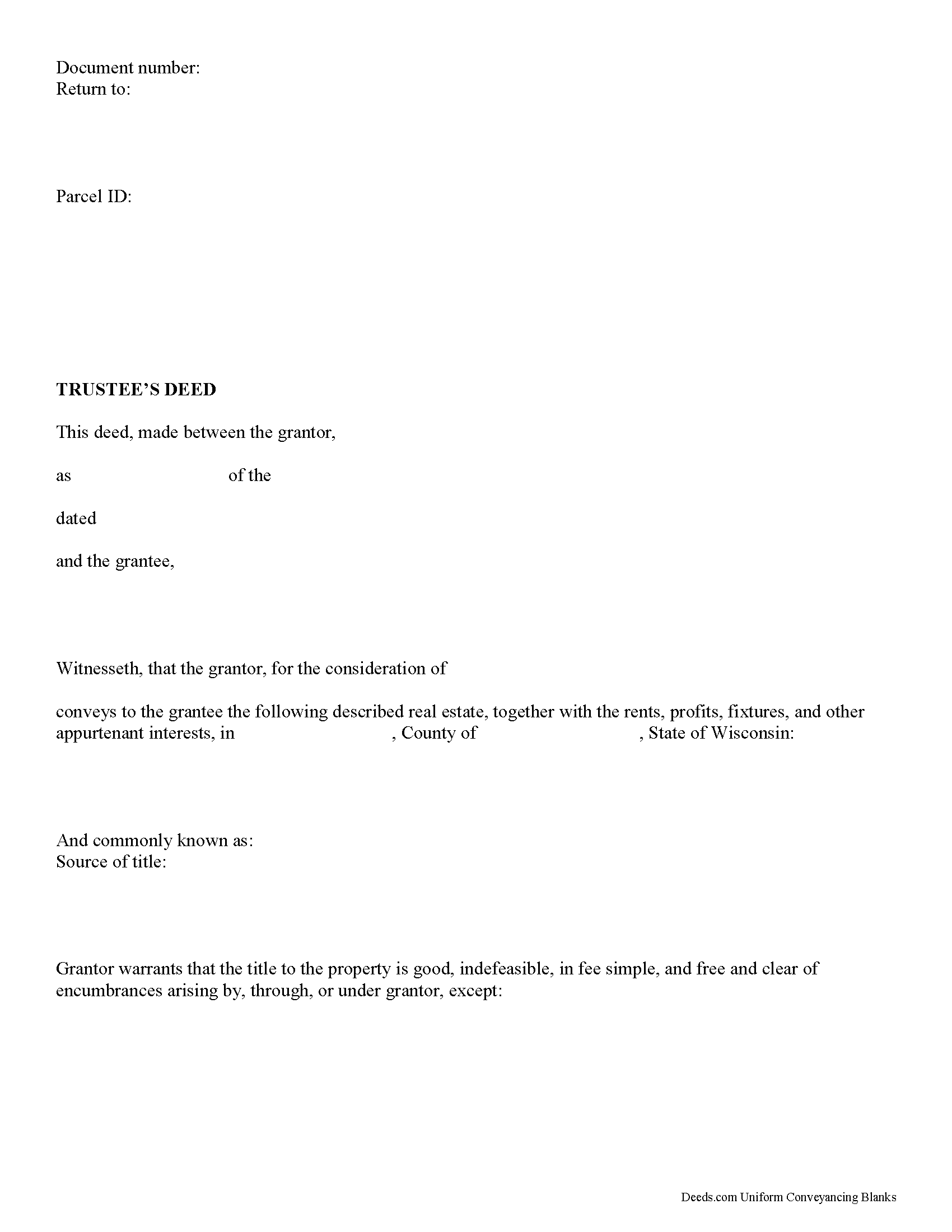Download Wisconsin Trustee Deed Legal Forms

Wisconsin Trustee Deed Overview

In a living trust, a grantor (settlor) transfers title to property to another person (trustee) for the benefit of a third (beneficiary). A settlor often serves as the original trustee (sometimes along with a spouse) and initial beneficiary of a living trust during his lifetime, and nominates a successor to take over fiduciary duties upon his death or incapacity, though this is not always the case. The settlor establishes the trust by executing a trust document, an unrecorded instrument outlining the scope and terms of the trust, including the settlor's estate plans. In transfers of real property into trust, the settlor executes a deed titling the property in the name of the trustee on behalf of the trust.
In order to convey real property from the trust during the settlor's lifetime, the trustee must execute a deed vesting title in the name of the grantee. In Wisconsin, a trustee's deed is a special warranty deed that has simply been named after the capacity of the granting party. The trustee's deed is identical in form to a special warranty deed, supplying in addition the name and date of the trust on behalf of which the grantor is conveying title. The deed contains the language that the grantor "warrants that the title to the property is good, indefeasible, in fee simple, and free and clear of encumbrances arising by, through, or under grantor" [2].
As noted by the Wisconsin Realtors Association, "personal representatives and other fiduciaries such as trustees and guardians...[who] are not sufficiently familiar with the history of the property to give a warranty deed" use a special warranty deed to convey title [1]. A special warranty deed contains the covenant that the title is free and clear of encumbrances only arising by, through, or under grantor, with any exceptions expressly noted in the conveyance.
The form should meet all content requisites for conveyancing instruments under 706.02, including the name of each party; a legal description of the property subject to conveyance; and original signatures of the grantors. All recordable documents should also meet formatting requisites established at 59.43(2m). The deed must be signed in the presence of a notary public before recording in the appropriate county register of deeds. Additional documentation confirming the trustee's authority may be required (see Wisconsin Trust Code 701.1013 for certification of trust).
Consult a lawyer with questions regarding transfers by trust in Wisconsin, as each situation is unique.
(Wisconsin TD Package includes form, guidelines, and completed example)